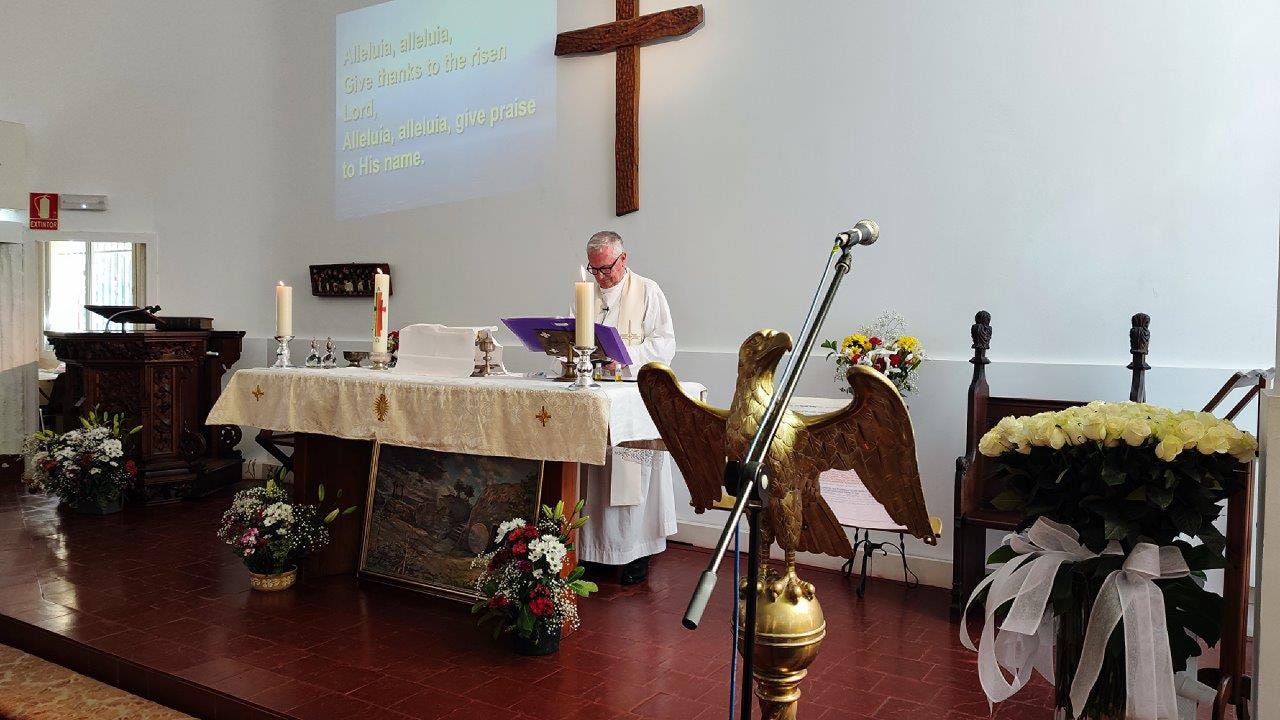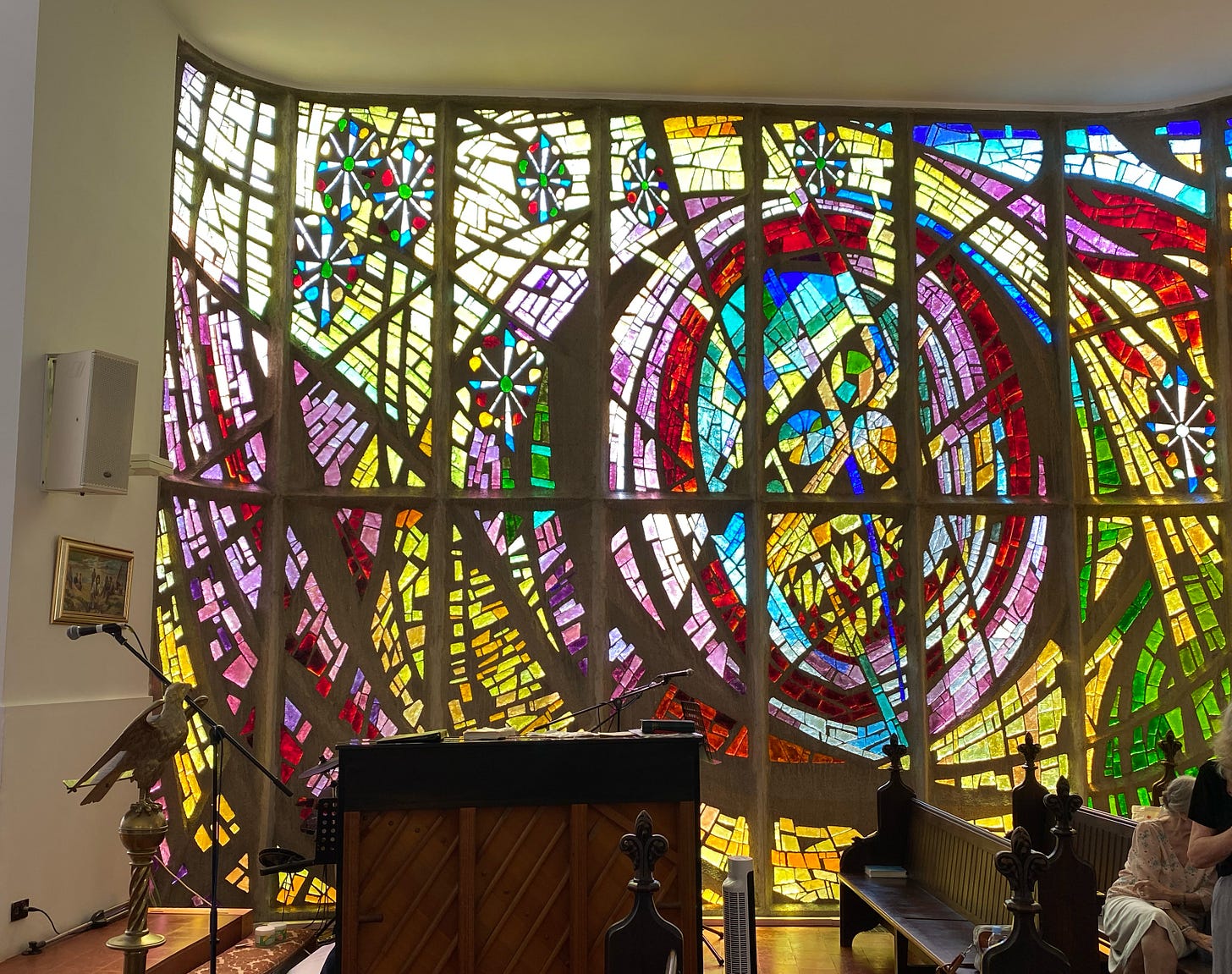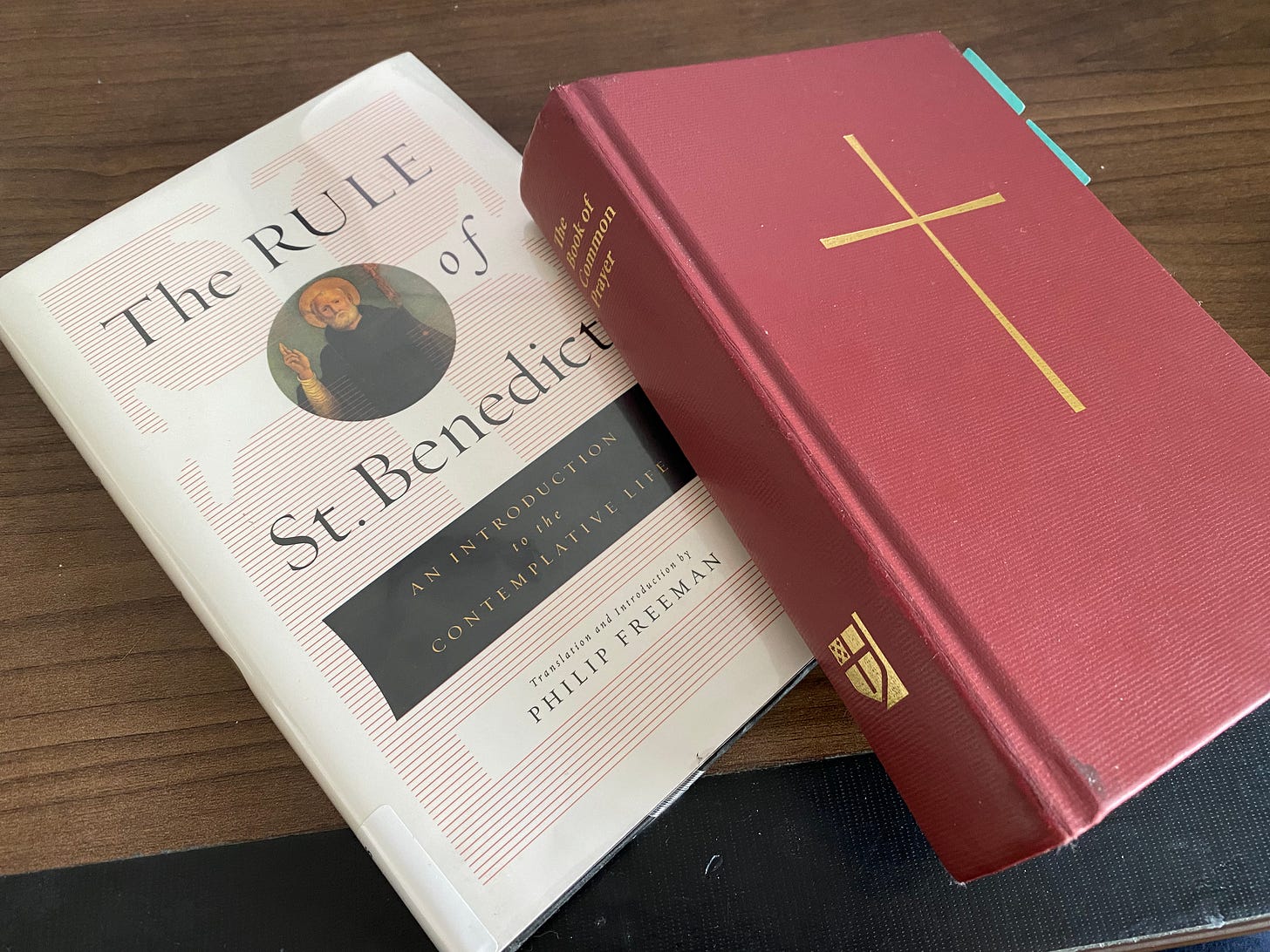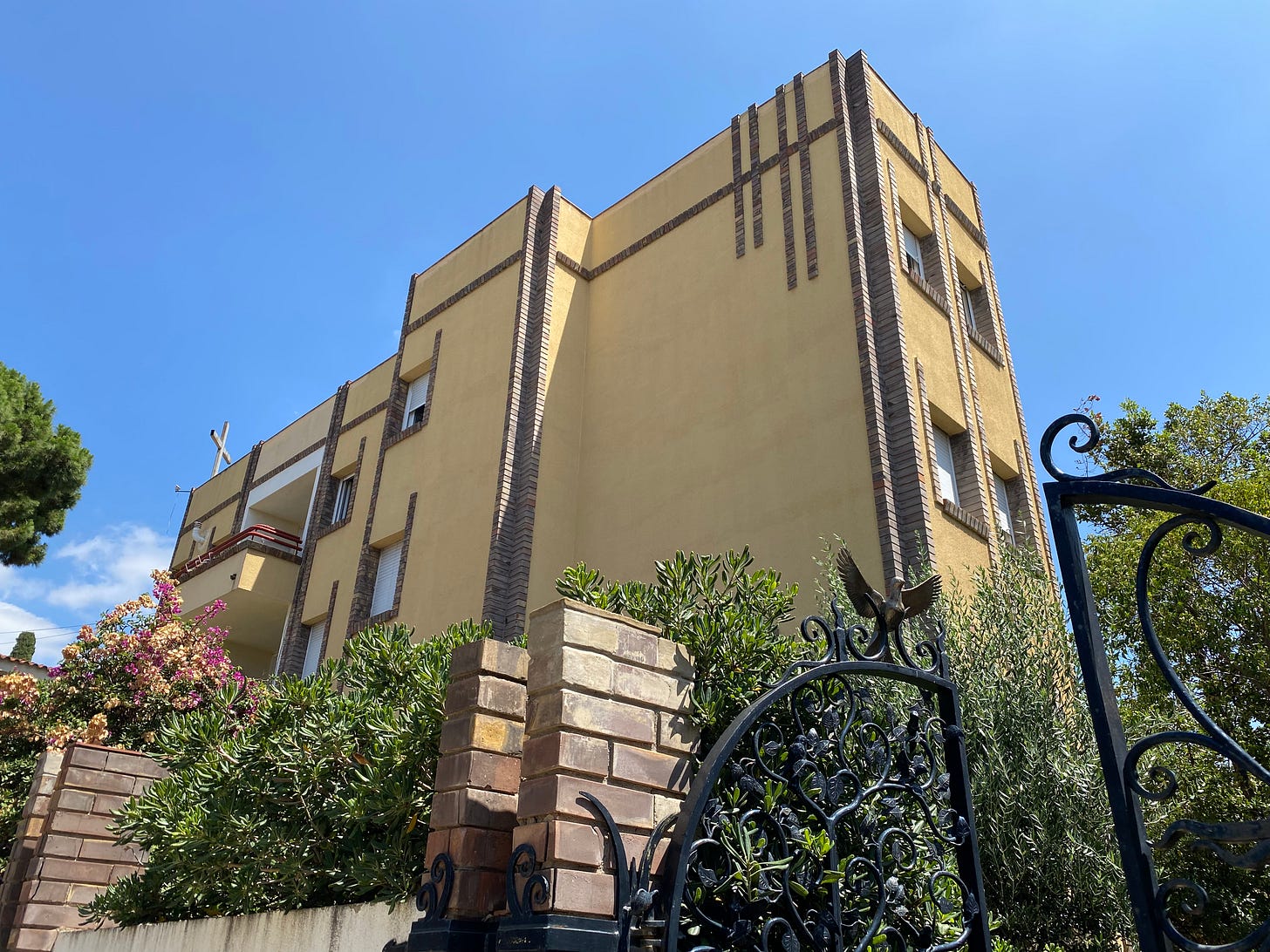In the foothills of northwestern Barcelona sits an unassuming cream-colored building that holds a surprising little gem: St. George’s Anglican Church. I love visiting churches and sitting in on their services. And so, being one of only two English-speaking churches I could find on my trip to Spain, at about this time last Sunday I found myself in the pews of St. George’s Church.
In some ways, St. George’s is your average, mainline church trying to keep things current—but not too current. The words to the hymns are projected onto the wall, but they are not of the “praise and worship” variety. One we sang was written by Charles Wesley.
But in another big way, St. George’s is not your typical church. That’s because as one of the only English-speaking churches in the city, St. George’s gets a lot of tourists, expats, retirees, and people who are just passing through.
“Hospitality is part of our Anglican tradition,” the Chaplain, the Rev. John Chapman, told me on the church’s patio after the service. “Last count I did there were people of 32 different nationalities here,” he said through a light Scottish accent, “so I always see the ministry here as celebrating the diversity of God’s people.”
That diversity was on full display last Sunday morning. Before the service I spoke with a British woman who had worked for the BBC and wound up staying in Barcelona. Next to me during the service was a man from Toronto who kept a flat in the nearby beach town of Sitges, and in the pew in front of me were two women from Uganda. Chaplain Chapman said it was his goal to craft a service where everyone felt loved and welcomed, regardless of where they came from.

“Just looking through the door here I see Peruvian, Polish, French Canadian, Nigerian. That’s the nature of our congregation,” he said in between goodbyes from congregants slowly making their way out of the obligatory post-worship coffee-hour.
This sort of international ministry is part of Chaplain Chapman’s calling. Originally a pharmacist, Chaplain Chapman answered God’s call in his 40s. He’s served non-English speaking churches in London, worked for missions in South America, and before coming to Catalonia, served as chaplain at a church in the United Arab Emirates.
He’s been at St. George’s for the past nine years with his wife, Deborah, who’s also an ordained minister in the Church of England. (On the Sunday I visited, she was filling in at a church about half an hour away.)

“I come from a family that was always international, and so from a very young age I was used to thinking of the whole world,” he said, smiling, his energy and passion contagious. “I love life,” he said, before going on to talk about his two children.
“A Grid for Living”
One of the things Chaplain Chapman finds helpful day-to-day is the Rule of St. Benedict. The Rule, which was written in the 6th century, serves as both a spiritual and practical guide for monks living together in an abbey.
Coincidentally, the Rule was my vacation reading. It’s still used by Benedictine monks, and since I knew we would be visiting the Benedictine abbey of Montserrat about an hour from Barcelona, I decided it would make good airplane reading.
To be honest, I wasn’t a big fan of the Rule and its near-constant exultation of humility. The Jesus which has always most appealed to me is not the suffering servant but the angry activist who is flipping over tables in the Temple. Several times, though, the Rule warned against “the sin of private property,” which definitely appeals to me as a Christian Socialist.

The Rule also lays out a strict schedule for prayer: seven times a day. The number comes from Psalm 119:164: “Seven times a day I praise you for your righteous ordinances.” The cycle begins with a pre-Sunrise Lauds service and concludes with a pre-sleep Compline. It’s the basis for the Liturgy of the Hours (also called the Divine Office) in the Roman Catholic tradition, as well as the Daily Office that remains in the Episcopal Book of Common Prayer (1979).
Chaplain Chapman said he even did a paraphrase of it for modern living, and that he and his wife try to keep the hours of prayer each day.
“We just stop whatever we’re doing for 30 seconds and pray.”
They don’t do it seven times a day, though, more like five, and joked that his spiritual director, a Benedictine monk, told him, “John any more than that would be anal.” (Chaplain Chapman said I could quote him on that.)
All jokes aside, he said that following a discipline of prayer, like the one in the Rule of St. Benedict, gave his life a sort of grid before he entered the ministry. Working in hospitals he found that his schedule was quite irregular, and that keeping a schedule of prayer would enable him to keep things in focus with the right priorities.
Chaplain Chapman believes a discipline of prayer can help people live better, healthier lives. So far, it’s worked for him—the pastor is turning 70 in January—and the Bishop has just given the sign-off to extend Chapman’s appointment to the church for five more years. If you’re ever in Barcelona on Sunday, I encourage you to stop by.
With Love,
Andrew
Brooklyn, N.Y.
July 23, 2023.




